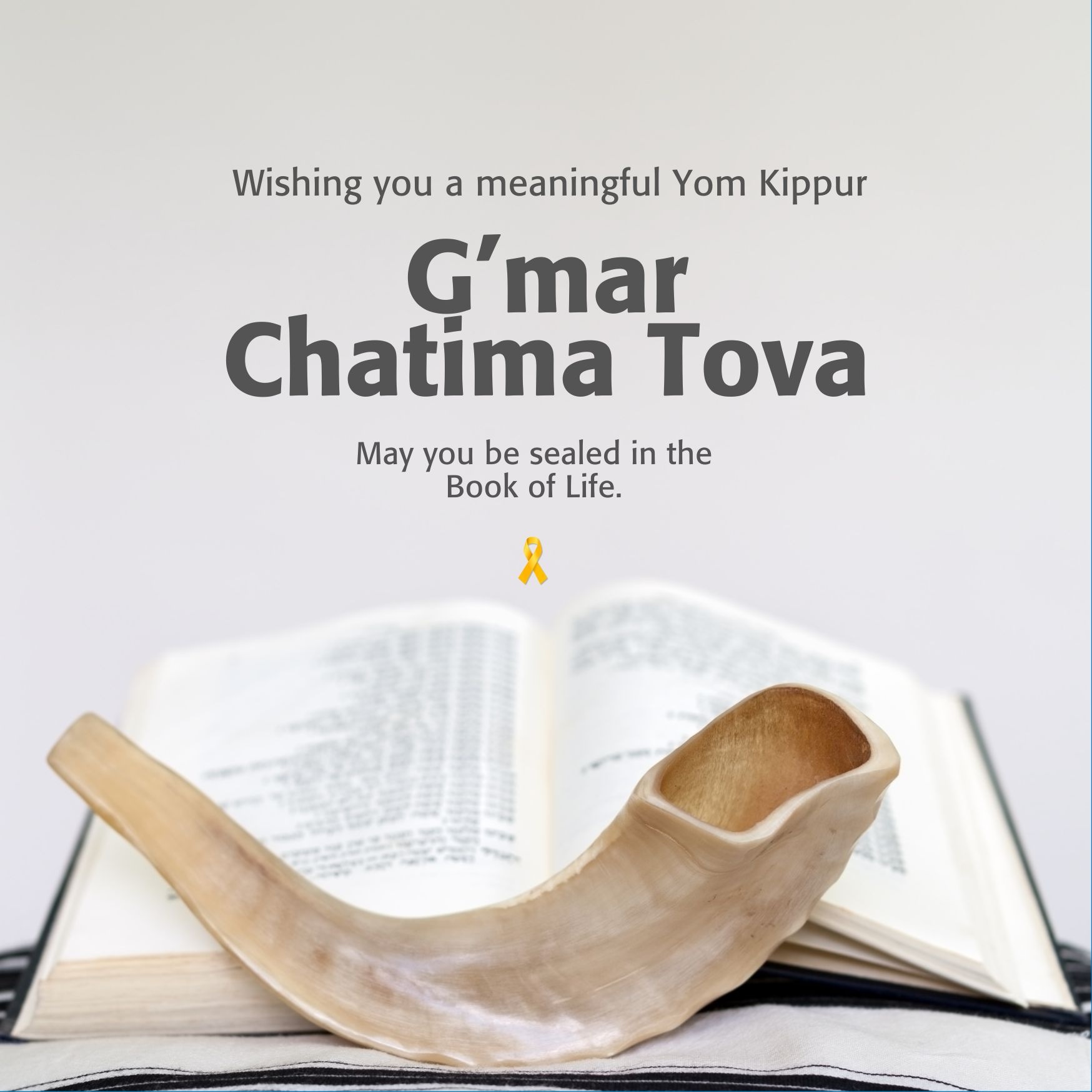Making Yom Kippur Meaningful
Yom Kippur: A Guide to Reflection, Forgiveness & Renewal
What’s Yom Kippur?
Yom Kippur, the holiest day on the Jewish calendar, begins at sundown Wednesday, October 1 and ends an hour after sundown Thursday, October 2. It’s a day of deep reflection, prayer, and atonement—an opportunity to wipe the slate clean and begin anew.
But before we turn to G-d for forgiveness, we must first seek it from those we’ve wronged. This personal accountability is at the heart of the Ten Days of Awe, the days between Rosh Hashanah and Yom Kippur.
The Book of Life
Jewish tradition teaches that on Rosh Hashanah our names are written in the Book of Life, and on Yom Kippur they are sealed. Through teshuva (repentance), tefillah (prayer), and tzedakah (charity), we can influence how our story unfolds in the year ahead.
Key Traditions
- Pre-Fast Meal & Candles – eat a filling meal and light candles before sundown.
- Fasting – refrain from food and drink for 25 hours (unless health requires otherwise).
- Prayer & Services – much of the day is spent in synagogue, focusing on the spiritual.
- Attire – wear white and avoid leather shoes as symbols of humility, purity, and equality.
- Customary Greetings –
- “L'shanah Tovah Tikatevu v'Techatemu” (May you be inscribed and sealed for a good year) or
- “G’mar Chatima Tova” (May you be sealed for a good year).
Making Yom Kippur Meaningful
- Family Reflection (Mikkud) – Set aside time to share hopes and goals for the year. You may find this resource helpful in guiding your conversations.
- Story with a Lesson – At camp, Ruchel comes from the “old country” each Shabbat to tell us a story with a moral. Share this Pillow with Feathers Story with your family, It reminds us that words, once spoken, can’t be taken back. Apologies matter, but our actions carry lasting weight.
- Future Letters – Write notes to your future selves about what you hope to achieve this year. Open them next Yom Kippur. Save them each year and create a scrapbook for each family member.
- Tzedakah (righteousness) – Giving to charity is an act of Tzedakah. It is customary to give additional money to charity during the Ten Days of Awe and especially on the day before Yom Kippur. Just as we ask G-d to judge us with charity and kindness, we should also give charity and act with kindness toward others.
- Practice Forgiveness – Seek out those you may have hurt and model sincere apologies for your children. Forgiveness can be healing, even if it doesn’t erase the past. This article from Psychology Today identifies several steps to making a successful apology.
A Message for Today
This Yom Kippur, as we reflect on our personal growth, we also carry the weight of recent challenges and losses. May this day inspire compassion, connection, and hope for a kinder world.
G’mar Chatima Tova – May you and your loved ones be sealed in the Book of Life for a year of peace, health, prosperity and sweetness.
The Beber Team,
Michael, Debbie, Stacy, Julia, Trudy, Harrell, and Nancy


